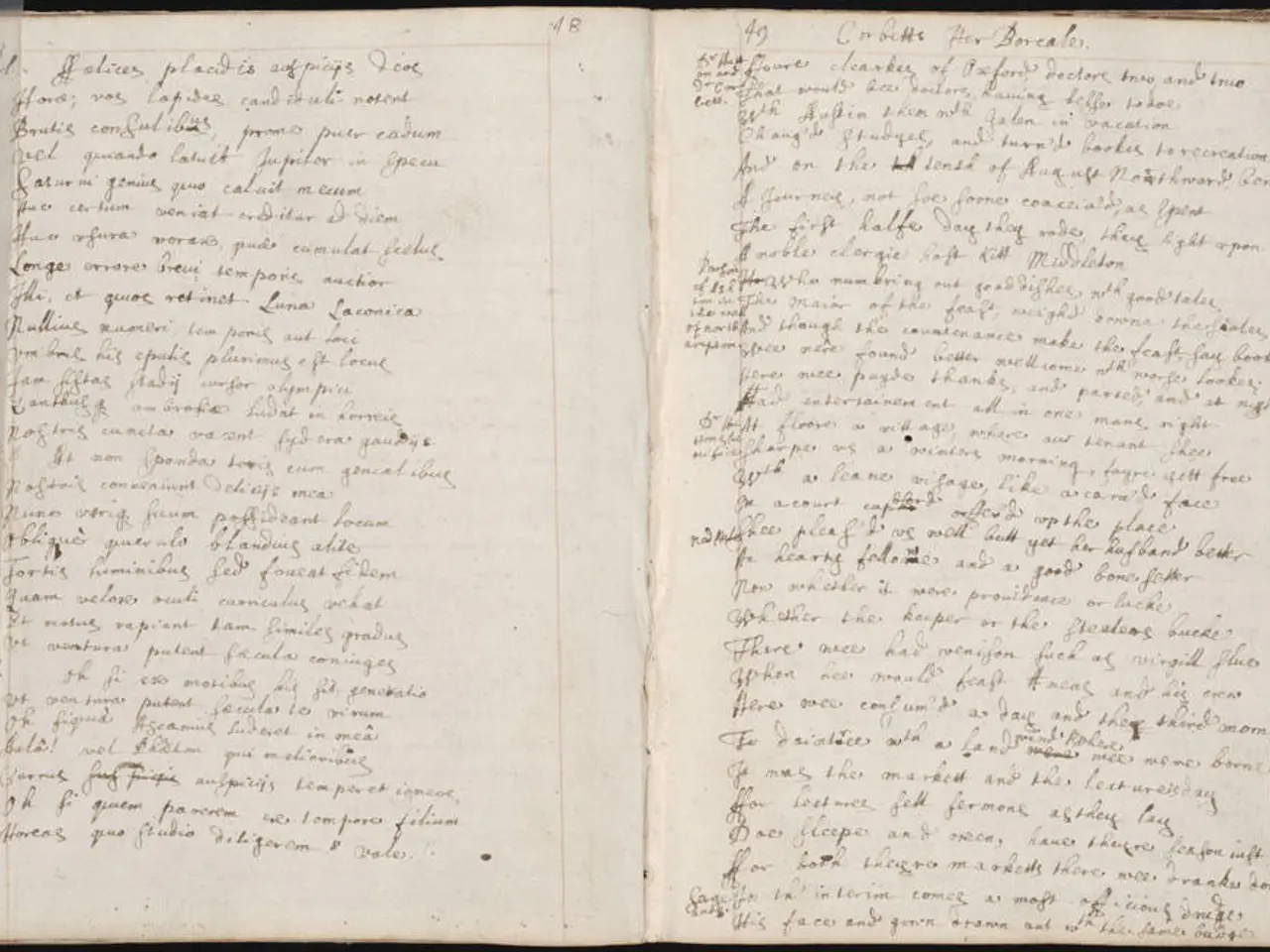Strategies for Achieving Success in Writing Workshops from a Personal Perspective
The Writing Seminar at Princeton University, specifically WRI 113 Craft of Authenticity, is a first-year writing requirement aimed at enhancing students' academic writing skills. This course focuses on developing an authentic voice and thoughtful, reflective engagement with texts, emphasizing writing as a craft involving authenticity and clarity.
Throughout the semester, students are required to develop their writing skills by producing three research papers. The papers, labelled D1, D2, and D3 for the drafts and R1, R2, and R3 for the revisions, are structured in a total of 3 drafts and 3 corresponding revisions. The R1 paper is 3-5 pages long, the R2 is 6-8 pages, and the R3 is 10-12 pages long.
Students can seek help from various resources to ensure they are writing in a strong and coherent manner. The Writing Center is available for students to talk through their ideas and receive assistance in creating outlines or writing magic thesis statements. Whiteboards are found to be helpful in brainstorming and structuring ideas for essays, as they can help walk the reader through the line of reasoning, evidence, and analysis.
Utilizing feedback from professors and peers is extremely helpful in improving revisions. Students can receive feedback for every draft, allowing them to refine their arguments and better present their ideas with confidence and scholarly rigor. The "piggyback" method, which involves riding off the authority of other authors by utilizing and building off of their sources, was found to be particularly helpful in the writing process.
A source called "The Gaipa Reading" is provided to teach students how to gain authority as a writer. This reading helps students understand their position as a writer and how to approach writing in a way that presents the current scholarship and walks readers through how they arrived at their argument. The Writing Lexicon, a document of all the writing terms, is given to every student at the beginning of the year, providing a useful resource for students to refer to throughout their academic career.
In addition to WRI 113, students can rank several Writing Seminars, including WRI 116: Sustainable Futures and WRI 159: Gray Matter. Princeton's Writing Seminar aims to teach students a specific writing style for academic papers, focusing on close reading, critical thinking, and iterative writing processes that enhance clarity, coherence, and voice in academic writing.
Overall, the Writing Seminar at Princeton University provides students with the tools and resources they need to succeed in their academic writing endeavors, fostering skills that extend across disciplines and helping students develop an "authentic" writing style rooted in personal engagement and intellectual honesty.
As part of The Writing Seminar at Princeton University, students are expected to produce a 'junior paper' as one of their research assignments, which could be an invaluable opportunity for 'learning' and 'self-development' in the field of education-and-self-development. Regular feedback from professors and peers, resources like the Writing Center, Whiteboards, and The Gaipa Reading, and a comprehensive Writing Lexicon are key components designed to aid students in creating well-structured and coherent academic papers, ultimately helping them develop an 'authentic' writing style.




